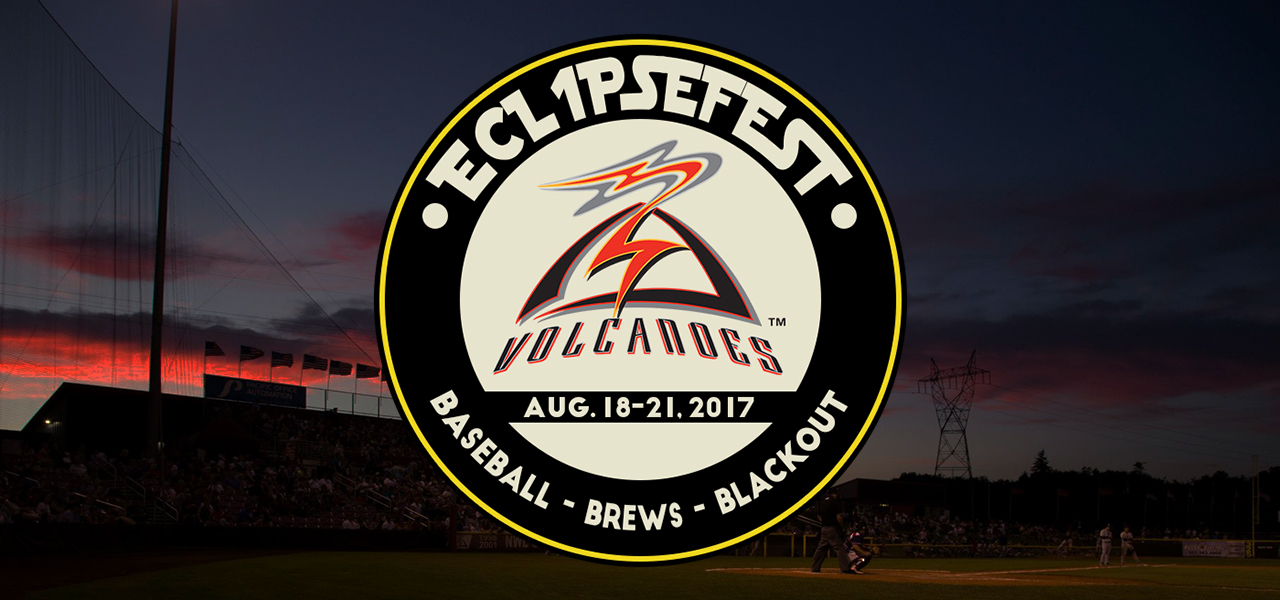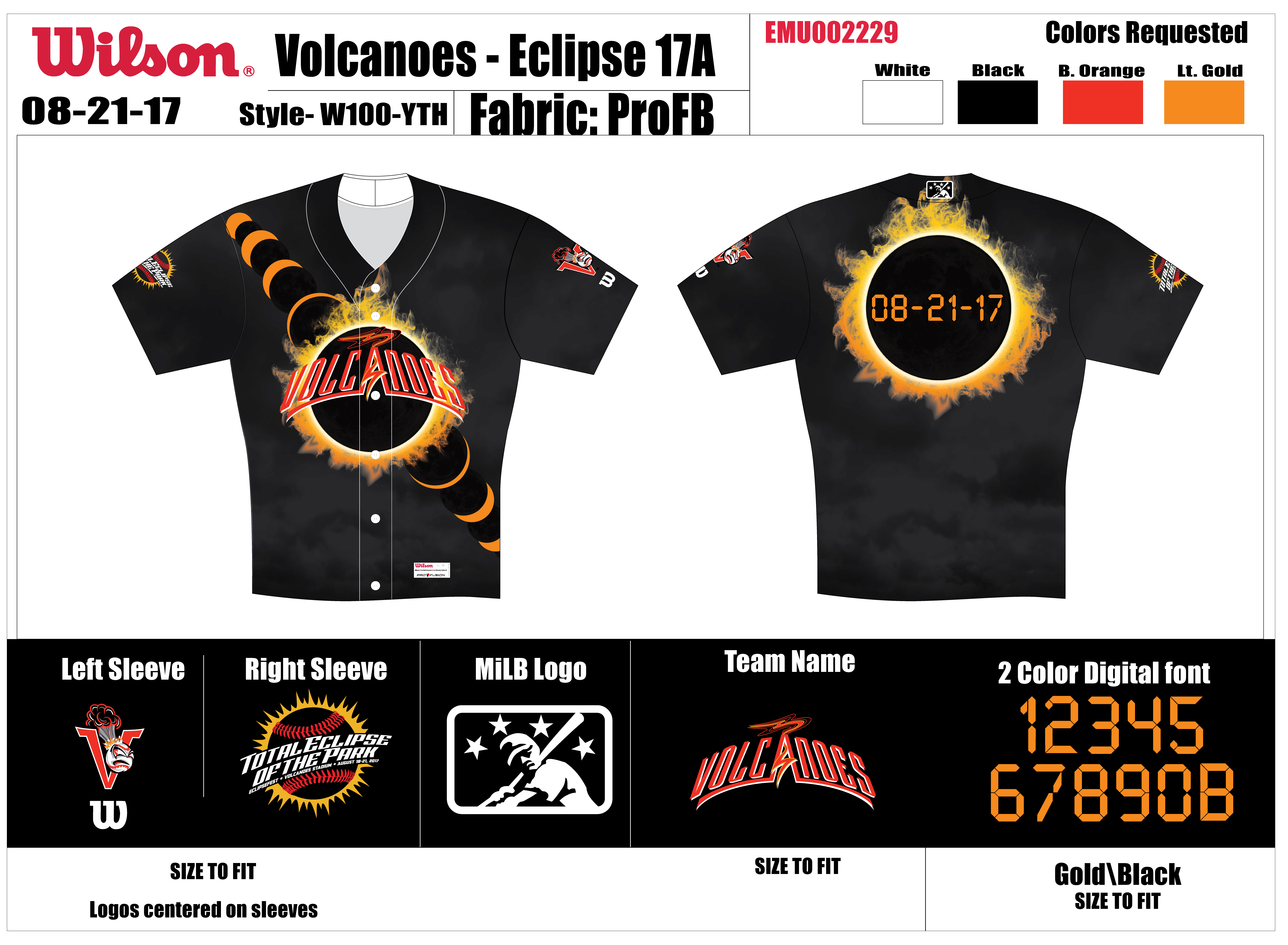For Minor-League Baseball Team, the Solar Eclipse Will Take the Field

The Salem-Keizer Volcanoes will start their baseball game Aug. 21 at precisely 9:35 a.m. local time, but will pause after one inning — then, NASA representatives will come out, the home team, visitors, staff and spectators will put on their eclipse glasses, and the stadium will be plunged into darkness.
As a total solar eclipse passes across the United States on Aug. 21, activity will grind to a halt as the sky darkens. But in Keizer, Oregon, the minor-league baseball team is prepared — three-day eclipse festival, NASA livestream on the Jumbotron, special uniforms and all.
"We ordered thousands and thousands of glasses because we want to make sure people are taken care of," said Lisa Walker, a co-owner and general manager of the Volcanoes. "We'll pause the game in due time so that people can prepare, be positioned. [It] will be probably 20 minutes at the least that we are paused, just for the full effect," she told Space.com. [Total Solar Eclipse 2017: When, Where and How to See It (Safely)]
But the full event is much broader than just 20 minutes: Starting on Friday (Aug. 18), the slate of events includes fireworks, a brewfest, a barbecue and a visit from baseball icon Ken Griffey Sr. Four special games will lead up to the eclipse.
When the team management realized their stadium was in the path of the total solar eclipse, they reached out to the Northwest League to ask whether they could host home games on those specific dates to take advantage of the upcoming totality. They then teamed up with NASA to develop a full program of events for the weekend.

On the day itself, NASA officials will help determine when to pause the game — innings can go on for longer than planned, Walker said, and they want to leave plenty of time to observe totality. But on the other hand, they have to avoid stopping too early so the pitchers stay warmed up.
"It's a fine line, it's a real dance" to execute the event while staying in everyone's good graces, Walker said.
Get the Space.com Newsletter
Breaking space news, the latest updates on rocket launches, skywatching events and more!
But then again, the other team, the Hillsboro Hops (also of Oregon), get one major advantage to playing during the special moment:
"The opposing team's pretty excited, because they're less than an hour north of us and they're not going to get totality," Walker said.
Tickets are still available online for the event, Walker said — although she suggests getting one for all four days to make sure there's space in the stadium. The event will also be livestreamed online for baseball and eclipse enthusiasts who can't make the trip to Oregon. (That livestream location is yet to be announced.) [Best Solar Eclipse Glasses - Prepare for the Aug. 21, 2017 Eclipse]
"We're selling tickets internationally as well as through the country," Walker said. "It's very exciting, and we just hope to knock it out of the park."
Editor's note: Space.com has teamed up with Simulation Curriculum to offer this awesome Eclipse Safari app to help you enjoy your eclipse experience. The free app is available for Apple and Android, and you can view it on the web.
Join our Space Forums to keep talking space on the latest missions, night sky and more! And if you have a news tip, correction or comment, let us know at: community@space.com.

Sarah Lewin started writing for Space.com in June of 2015 as a Staff Writer and became Associate Editor in 2019 . Her work has been featured by Scientific American, IEEE Spectrum, Quanta Magazine, Wired, The Scientist, Science Friday and WGBH's Inside NOVA. Sarah has an MA from NYU's Science, Health and Environmental Reporting Program and an AB in mathematics from Brown University. When not writing, reading or thinking about space, Sarah enjoys musical theatre and mathematical papercraft. She is currently Assistant News Editor at Scientific American. You can follow her on Twitter @SarahExplains.









